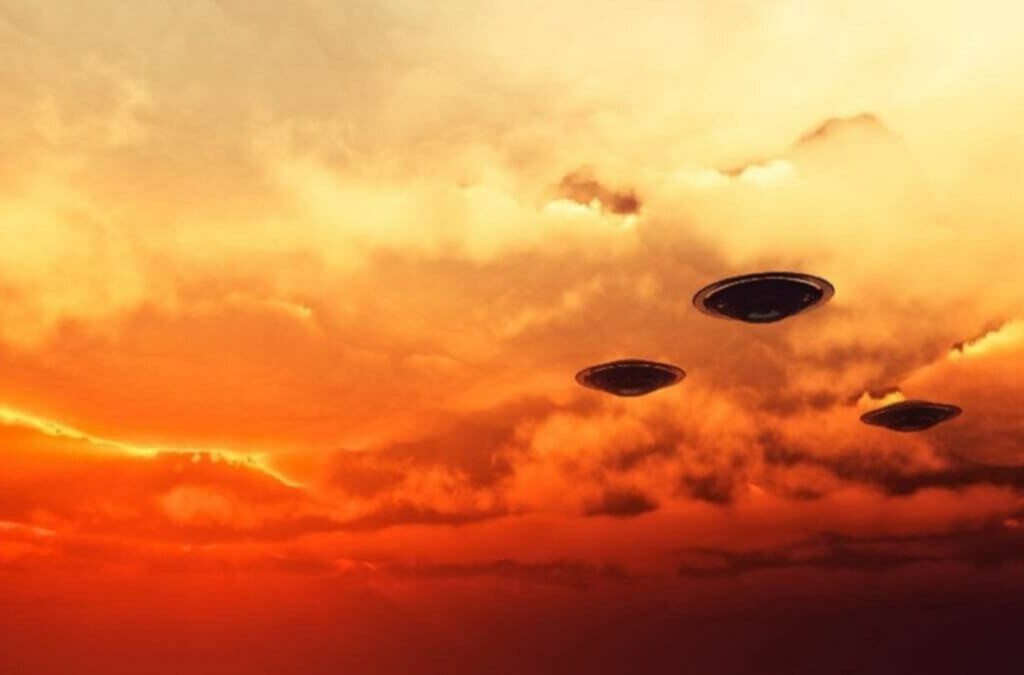The Soviet Union dedicated military and scientific units to the study of UFOs, conducting experiments and employing secret protocols. Generals and academics collected data to understand phenomena that, on multiple occasions, defied known logic. Today, the mystery persists through accounts from former military personnel, documented evidence, and the ongoing debate about their nature.
Soviet Sightings: How Authorities Reacted to UFOs
In the former Soviet Union, high-ranking military officials and state agencies showed significant interest in these phenomena, dedicating resources and efforts to their investigation.
Even though the subject was officially classified, over the decades, details about these inquiries have emerged, fueling theories that intertwine geopolitics, science, and the possibility of extraterrestrial life. This analysis seeks to explore the history, objectives, and legacy of those secret programs.
The USSR, like other global powers, experienced unprecedented scientific and military advancements during the Cold War. Under a strict security apparatus, research institutes were established, and spaces were allocated for the analysis of unconventional matters. Some Soviet specialists speculated that UFOs might be foreign technologies or even evidence of non-human intelligence, during a time when rivalry with the United States dominated political and military agendas.
On the other hand, the appearance of luminous phenomena in Russian skies alarmed the population. The idea that objects capable of evading radar and defense protocols existed could not be ignored. Local authorities and independent researchers began gathering reports to understand what was happening within their borders.
Official Investigations
Soviet interest materialized in special units within the KGB and the Ministry of Defense, responsible for collecting reports of sightings and anomalous events. These agencies, overseen by generals and technicians, established protocols to handle information confidentially.
Preventing public panic was a priority, as any rumor about unknown crafts could lead to theories that jeopardized national security.
The notable involvement of academics like Felix Ziegel, considered a pioneer of ufology in Russia, showed that not all knowledge about UFOs originated from the military. Ziegel, an astronomer and mathematician, promoted conferences and volunteer groups to study these phenomena without jumping to hasty conclusions.
Although many of his ideas were ahead of their time, they gradually influenced some scientists, who advocated for a multidisciplinary approach.
Military Experiments
A significant milestone occurred in the Astrakhan region in the early 1980s, where army personnel decided to “call” UFOs to confirm their presence during periods of intense military activity.
In this context, flight maneuvers and the movement of weaponry were increased to create tension, as it was suspected that UFOs appeared more frequently during testing or the mass storage of armaments.
The experience proved revealing: many witnesses corroborated the appearance of luminous spheres that responded in surprising ways to stimuli from the ground.
Some team members waved their arms or used light signals, while the objects appeared to respond with synchronized movements. Although there was no absolute consensus on the nature of these “visits,” hypotheses ranged from espionage devices from other powers to unknown natural phenomena or signs of extraterrestrial life.
Theories and Repercussions
At the height of the Cold War, the USSR’s concerns extended beyond mere scientific curiosity. The potential appearance of anomalous objects raised fears that they might be drones or experimental craft from the United States or Japan designed to gather sensitive information.
As a result, security procedures became more complex, and guides were even developed for pilots and air traffic controllers on how to act if they detected strange lights or shapes during flights.
On the other hand, the contributions of prominent scientists, such as Academician Aleksandrov, considered the father of Soviet nuclear power plants, prompted authorities to consider better organization for observations. Various institutions began drafting reports to document each incident and search for patterns that could shed light on the motivations behind these appearances.
The Current Legacy
After the dissolution of the USSR, much of that knowledge was dispersed in official archives or the collective memory of soldiers and witnesses. Today, governments and independent organizations have taken a more open approach to analyzing sightings globally. NASA, for instance, occasionally publishes studies and photographs of unconventional astronomical phenomena, emphasizing the importance of scientific methodology in distinguishing between natural anomalies and potential signs of intelligence.
Meanwhile, in recent interviews, former Soviet military personnel have recounted their experiences with UFOs, confirming the rigorous oversight intelligence agencies maintained in their search for answers. For many, the lack of official transparency and the stigma surrounding the topic hinder the disclosure of verified data.
The Soviet Enigma: UFOs, Military Secrets, and the Debate on the Unknown
Ultimately, the interplay of political forces, scientific research, and personal experiences has shaped one of the most enigmatic chapters of modern history. Similarly, investigative media frequently cover topics associated with the unknown, contributing to a broader debate about the possibility of realities unexplained by human technology.
Although it cannot be confirmed whether the Soviet Union made tangible contact with beings from other worlds, the intense effort to understand one of the great mysteries of our time is undeniable. What began as curiosity about lights in the sky evolved into military projects and secret files worthy of the best science fiction novel.
Naturally, classified archives continue to fuel theories, and to this day, some pilots prefer not to disclose details that could jeopardize their careers or generate controversy.
In perspective, the actions taken by the Soviet government regarding UFOs highlight the complexity of a phenomenon that, according to witnesses and documents, influenced state decisions and security programs.
Furthermore, they suggest that maintaining an open and rigorous approach could expand our understanding of events that challenge the boundaries of human knowledge, whether due to a yet unknown scientific component or the hypothetical intervention of civilizations beyond our planet.





